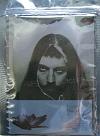- Administrator
- Albums and Singles
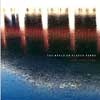 "Krautrock" would be the most appropriate description for the sound TWoHD make, though their Germanic descent is unlikely, and Wisconsin is pretty far from Europe. But they do take the approach that Can did with regards to recording to the next logical step. Instead of just taking sessions of improvisation and melding them into "tracks," they composed the album in different locations, and then pieced it together into coherent works. The result is very different experience than these ears are used to
"Krautrock" would be the most appropriate description for the sound TWoHD make, though their Germanic descent is unlikely, and Wisconsin is pretty far from Europe. But they do take the approach that Can did with regards to recording to the next logical step. Instead of just taking sessions of improvisation and melding them into "tracks," they composed the album in different locations, and then pieced it together into coherent works. The result is very different experience than these ears are used to
The entire disc is covered in a haze of reverb that gives the vibe of '90s shoegaze bands, but maybe not so much in content as atmosphere. The four members of TWoHD play a variety of instruments throughout, creating tracks that differ greatly from one another, but with a similar feel throughout. Strings and lush synths are prominent on songs like "Ascension And" and "A Muted Street Song," but the latter is augmented with live drums and heavily processed percussion as well. Even with the vast instrumentation, a song like "Waterpath St." drifts in an ambient space of bass drone with metallic scrapes.
Unconventional instrumentation plays a role throughout as well, such as the human snapping/slapping percussion in "Two Aged Windows," and the molten cassette tape hiss of "Her Static Will." The album ends on an odd note with the slow, simplistic percussion of "Sun Court" mixed with orchestra hits and crashes, not unlike a lo-fi symphony. There is a very calm, relaxed feeling throughout the entire album, though some elements of darkness creep in, like the subtle synth dread in "Her Static Will" and the bleakness of "Waterpath St."
The most difficult aspect of this album is just how dense it is. The massive amounts of multitracking and instrumentation make it difficult to discern exactly what is going on at times. It is never overly muddled or muddy, but my tastes are for more sparseness. The density does, however, contribute to a very prominent atmosphere throughout
Land Patterns is not a work that can be easily described at all using any genre definitions or terms. There are elements of jazz, electronic, alternative rock, and classical here for sure. In that regard, it is not unlike an even more unconventional Fridge with an even greater amount of instrumentation mixed in. As a debut, it is extremely strong and diverse and hopefully marks the beginning of a long career.
samples:
Read More
- Administrator
- Albums and Singles
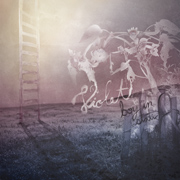 Bearing a sound ideal for the next sentimental Michel Gondry or Zach Braff film, this proficient artist's second album suckles at the fleshy yet noticeably sagging teat of '90s shoegaze while concurrently seeking a way out of the trappings of that tempting template.
Bearing a sound ideal for the next sentimental Michel Gondry or Zach Braff film, this proficient artist's second album suckles at the fleshy yet noticeably sagging teat of '90s shoegaze while concurrently seeking a way out of the trappings of that tempting template.
My first experiences with this curious little subgenre came during my teens when the disaffected young ladies I surrounded myself with turned me on to groups like Mazzy Star and Cranes. Axiomatically different from the grunge and metal I was then deeply infatuated with, these and other like-minded artists occasionally found their way into my listening, particularly during those depressive late-night hours of adolescent confusion. My appreciation for this music grew deeper when later, while still blissfully underage, I began to frequent certain New York City goth clubs, where I both heard and saw live performances from many acts in the Projekt stable. While those days are long gone, I still find time every now and again to enjoy a few of these sonic thrills and chills from my own restlessly pensive youth. Violet, Alexander Chen's new album as Boy In Static, recalls for me this strange time with an authenticity that gives me pause.
Opener "First Love" emerges like a sunrise slowly revealed in those hazy meaningful early morning minutes that most people hardly ever find cause to witness. This style sets a precarious tone for these ten tracks, as if the feelings evoked at that time have somehow been frozen or considerably slowed into a bleary-eyed fugue. "Where It Ends," the designated single, falls comfortably in line not with some of the most recognizable tunes in the subgenre, but also with the electronically derived highlights of acts like The Postal Service. Here, contemplating either the dusk of day or of man, Chen sings of a past love that he longs to reclaim over a tenebrous post-punk bassline and desperately muted programmed percussion. His delicately poetic and sometimes cryptic lyrics, while not very clear in delivery, suit not just the far out music, but also his light, effeminate voice. It is reasonable to suspect that the words to sublime tracks like "December" and "Leave You Blind" were scribbled reflectively just as the undaunted dawn began to rise.
Naturally, the main problem that Boy In Static faces is that shoegaze and dream pop have not evolved much over the past decade, resulting in a crop of painfully similar artists eager to absorb their influences while never quite breaking free of them. Although I'm willing to concede that Chen does it better than most, I suspect that he is still looking for a new curve in the road, one less crowded that his current location. Even if he doesn't quite realize that himself, Chen's music subconsciously exudes unrest that will hopefully be resolved in future recordings. Still, those who dig on sensitive, edgy music will find Violet an unobjectionable and welcome, as well as more than a few directionless teenagers.
samples:
Read More
- Administrator
- Albums and Singles
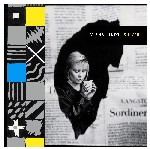 This reissue (from 1983) is something of a gem. Virna Lindt's music is a blend of fashion and espionage as perfect as if she were the love-child of Emma Peel from The Avengers and Ilya Kuryakin from The Man From U.N.C.L.E.
This reissue (from 1983) is something of a gem. Virna Lindt's music is a blend of fashion and espionage as perfect as if she were the love-child of Emma Peel from The Avengers and Ilya Kuryakin from The Man From U.N.C.L.E.The illusion that Virna Lindt perpetrates is circular: Swedish translation student pretending to be a jet-set model revealed as a spy masquerading as a singer (and so on). Visually, her fabulous appeal is that of a Gerry & Sylvia Anderson prototype action doll come to life and gone undercover, maybe one of the Angel fighter pilots from the Captain Scarlet series. All that would be mere pap if the music didn't add up to more than an exercise in style. But, after a quarter of a century, the simple integrity of the arrangements and her unruffled vocal style deserve to be brought in from the cold.
Paradoxically, "Attention Stockholm," the story of a secret agent who has disappeared, announced Virna Lindt to the world (she topped the independent charts in the UK); her lovely but distant face adorned the music papers. The track still sounds smart, urgent, and alluring. Puns on the words "cologne" and "scent" are particularly sweet, but a creeping frantic edge keeps a great single in balance. The title track to Shiver proves that few things work as well as a mysterious beauty muttering in a foreign tongue. The track makes great use of an echo halfway between a gunshot and the sound of a glacier cracking.
"Pillow Talk" exudes an aroma which brings to mind the exploits of the John Profumo Affair, when the erotic stink of Christine Keeler and Mandy Rice-Davies brought several government ministers to their knees in more ways than one. Lindt proclaims that she doesn't believe in love (or) lies anymore, but anyone hearing her coo "All the president's men won't come between us" is likely to join the line of her admirers no matter what secrets she might extract. The restrained use of a sound that is more whip than handclap adds to the atmosphere. "Swedish Modern" is all reversed tapes and references to the Scandanavian furniture that was popular in the UK when Shiver was first released. "I Beat the System" could be mistaken for the continental piano-playing pen-pal of the Waterboys’ "A Girl Called Johnny", while "The Dossier on Virna Lindt" is a leisurely stroll through deserted streets reading her answers to a teen-magazine questionnaire ( "Leisure activities: Sabotage and sin" ).
The short instrumental "Episode One" begins with frozen synth emerging like a boat from fog until another bubbling layer adds an element of emotion, suggesting arrival or departure. The track was originally the perfect B-side for the "Attention Stockholm" 7" single from 1981. Although I personally find "Underwater Boy" as syrupy as real disco, it predicts the homage that is Air's Moon Safari by a couple of decades. In the bonus section, this CD reissue includes an ever-so-slightly warped cover of "The Windmills of Your Mind" from the soundtrack of The Thomas Crown Affair.
On Shiver, Virna Lindt takes one idea to a perfect conclusion with tremendous grace and a good humor that never goes over-the-top. Co-conspirator Tot Taylor (who just happened to be a record producer) is said to have met her on a train and responded to her desire to make music that was "like Hitchcock with a rock and roll beat"; though presumably, if her desire had been to rob a bank, he would likely have found some guns and a book on safecracking pretty quickly. Taylor and Lindt remixed and repackaged the album in 1997, and it sounds as playfully aloof as ever, Lindt's icy mystique unthawed by time. Shiver harks back to a fun time when tiny labels like The Compact Organisation looked like they could rule the world of pop. If only,...
samples:
Read More
- Administrator
- Albums and Singles
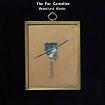 This collects for the first time in ten years the band's two EPs: 1995's Fight Songs and 1996's Marshmallows. The results on this record are curious, occasionally interesting, but more often than not frustrating. Brian McMahan's second act following his turn in the massively influential Slint, The For Carnation took that band's adept usage of open space and tension and attempted to apply them to low-key acoustic arrangements.
This collects for the first time in ten years the band's two EPs: 1995's Fight Songs and 1996's Marshmallows. The results on this record are curious, occasionally interesting, but more often than not frustrating. Brian McMahan's second act following his turn in the massively influential Slint, The For Carnation took that band's adept usage of open space and tension and attempted to apply them to low-key acoustic arrangements.
Unfortunately, it is impossible not to draw comparisons between the two groups. Slint was and remains successful because their studied tension and release applied well to a rock band dynamic. Additionally, McMahan's vocals in that band, half way between a whisper and an off-key holler, were successful because they conveyed all the fear, doubt, and naiveté that was evident in the music. The For Carnation, on the other hand, suffers from the fact that the songs are often half-formed and uninteresting. Music this intimate requires dynamics, and despite appearances from such post-rock luminaries such as David Pajo, Doug McCombs, and John Herndon, the songs fail to go anywhere interesting. This isn’t a total dismissal.
A few bright spots emerge from the repetitive chord sequences and staid drumming. "On the Swing" is a poignant ballad with softly brushed drums and gently plucked guitar that features some of McMahan's best singing. "Salo" is pleasant enough, but at almost seven minutes long tries my patience and ultimately finds me hitting the skip button. Unfortunately, for every time the group seemed to find their footing, they lose with another rote post-rock track like "I Wear the Gold." The wisdom of reissuing records from a band that released roughly an album and a half of, at best, mediocre material is lost on me. I'm left wondering "does every 1990s indie band need a reissue?"
samples:
Read More
- Creaig Dunton
- Albums and Singles
On this very brief pink/red marbled vinyl 7", the two artists collaborate on a rather subtle work with both sides showing a very distinct character. "Properties" is all stuttering electronics, field recordings, and other near-impossible to place sounds. Squeaks, bangs, and a bit of guitar abuse sound like damaged childhood toys put out to pasture in a suburban parking lot to deliver their dying breaths. The flipside, "Ribbons" is somewhat more conventional, based around guitar textures, electronic tones, and field recordings of birds and insects. It's a bizarre set of recordings, but very compelling in their oddity and definitely worth checking out.
Read More
- Administrator
- Albums and Singles
Read More
- Administrator
- Albums and Singles
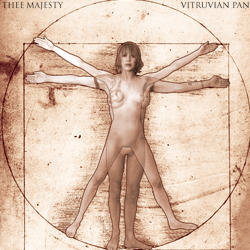 Just weeks after Psychic TV's dismal new album and mere months since Throbbing Gristle's disobedient reunion record comes the delinquent sophomore full-length from this spoken word project of the ubiquitous frontperson behind all three musical entities, making 2007 one of his/her most prolific periods in many years.
Just weeks after Psychic TV's dismal new album and mere months since Throbbing Gristle's disobedient reunion record comes the delinquent sophomore full-length from this spoken word project of the ubiquitous frontperson behind all three musical entities, making 2007 one of his/her most prolific periods in many years.
On 1999's Time's Up, Genesis Breyer P-Orridge spun witty metaphysical yarns over ethereally supernatural atmospheres built by the underestimated Bryin Dall. With the 2004 bankruptcy of World Serpent Distribution, it became yet another fine post-TG transmission all-but-forgotten in its sizeable archives, to say nothing of Dall, whose WSD back catalog of Loretta's Doll and Order Of The Suffering Clown affiliated acts remains improperly out-of-print. Yet from there the project took an illogical path, unapologetically slapping Thee Majesty's name over those of reissued Psychic TV and Splinter Test recordings for Voiceprint, a label which has also re-released several of Gen's "disconcerts" on CD. The rationale behind these acts of discographic revisionism is at least partly symbolic, a heartily bellowed fuck-you to Martin Atkins and his Invisible Records, who allegedly has swindled Gen out of royalties owed on a trilogy of double disc Psychic TV acid house period collections. 2005's Mary Never Wanted Jesus, a limited edition "Odds & Sods" compilation of alternate mixes strictly for the devout, was near-impossible to find beyond the mail-order section of Gen's website or on the merchandise table at the occasional Thee Majesty live performance. Now, roughly eight years since the debut, the duo follows up and follows through with this exciting new album for the worthy Blossoming Noise label.
Vitruvian Pan is everything that Hell is Invisible...Heaven is Her/e should have been, a tenacious countercultural document that tests boundaries, questions dogmatic truths, and embraces taboos. Largely spoken and occasionally shouted, the enchanting lyrical monologues and hypnotic tonal qualities of his/her voice hearken back not just to Time's Up, but to other high points in his/her recorded history. Weirdo outsider grooves dominate these recordings, some unsubtly echoing sounds heard in on the streets and nightclubs of New York City, the place where Gen now rests his/her head. "Thee Nature Ov Control" and "Bee My Honey Bee" both grab hold of the boom-bap of hip-hop while mutating and mutilating it for the duo's purposes. The shuffling minimal techno of "Thee Land Ov Do Do" would be almost danceable if not for Gen's intentionally garbled, heavily effected speech. Fortunately the accompanying booklet, part of the attractive and apparently eco-friendly package, features all of the lyrics.
Essentially in exile, Gen-as-expatriate inevitably creeps into the lyrics, most noticeably on "Save Their Souls," with a slyly delivered declaration that he/she bears the distinction of "most evil man in Great Britain". Dall's eclecticism too shines through, from the sparse psychedelic dub of "Hey Baby!" to the dissonant possessed soundscapes of "Feel Strange." While many of my fellow Throbbing Gristle fans might deem this outrageous, I anticipate that I will listen to this album far more than Part Two - The Endless Not in the months and even years to come. Where the latter arouses and provokes, Vitruvian Pan tries another tack by approaching the listener in a far more accessible manner.
samples:
Read More
- Administrator
- Albums and Singles
 A techno pioneer with countless aliases and highly sought-after releases, Fred Giannelli still apparently holds quite the grudge against former collaborator Genesis Breyer P-Orridge. Instead of bitterly lambasting the transgender icon, this veteran producer displays his biting sense of humor in this electrifying yet cheeky live document.
A techno pioneer with countless aliases and highly sought-after releases, Fred Giannelli still apparently holds quite the grudge against former collaborator Genesis Breyer P-Orridge. Instead of bitterly lambasting the transgender icon, this veteran producer displays his biting sense of humor in this electrifying yet cheeky live document.
A case could be made that Giannelli deserves most if not all of the credit for the acid house recordings disseminated by Temple Records and Wax Trax! during the late '80s and early '90s. Undeterred and undoubtedly educated by his tumultuous experiences in Psychic TV, Giannelli went on to make his mark in the thriving '90s global techno scene with slab after slab of dancefloor-ready vinyl for Plus8, Sahko, Superstition, and his own Telepathic imprint, to name a few. The Kooky Scientist, the name that graces much of his output for Richie Hawtin's untouchable techno label, has released very little over the last decade under perhaps his most well known moniker.
Thankfully, the self-released and thus self-financed Kook Kontrol remedies this. Spanning about 58 minutes, the audio here comes from a December 2006 gig in San Francisco. Giannelli claims that the subsequent performance was inadvertently inspired by spending much of that day in conversation with seminal industrial artist and friend Monte Cazazza, whose limited output includes a record on Telepathic. This extended encounter puts some of the track titles and certainly the artwork, a parody of the standard Psychic TV live album template, into context, though the liner notes provide no clear indication whether or not this thematic structure had been his intent all along.
From the opening William S. Burroughs cut-up to segments marked "Bring Me Thee Head Ov Genesis P-Orridge," Kook Kontrol could be superficially viewed as an immodest hour-long snipe. Yet when stripped of the anti-PTV motif, listeners are left with all the hallmarks of Giannelli's infectious, club-friendly sensibility. Seamlessly mixing with Ableton Live software, Giannelli presumably worked that Californian dancefloor nice and hard with acidic bass lines, sumptuous stabs, and steady machine beats. Some of the tracks come from previous releases, such as "A Little Older, A Little Bolder," while others appear for the first time. Highlights include "Precious Prescience" and "Delirious Delores," though the entire set flows logically with natural peaks and rare valleys. As A Guy Called Gerald did with his Proto-Acid in 2006, Giannelli charts a similar course with this non-stop mix of original material that references the past (of techno as well as his own), while simultaneously challenging the future.
sample:
Read More
- Administrator
- Albums and Singles
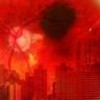 Cut adrift when Kindercore Records went dormant a few years ago, this Athens, Georgia, band took the separation in stride. Since then, their musicianship and songwriting have evolved, resulting in a more deliberate and energetic style that evokes a broader range of experience. On this, their first new album in four years, Maserati gets everything right.
Cut adrift when Kindercore Records went dormant a few years ago, this Athens, Georgia, band took the separation in stride. Since then, their musicianship and songwriting have evolved, resulting in a more deliberate and energetic style that evokes a broader range of experience. On this, their first new album in four years, Maserati gets everything right.
I have to admit that when I first heard the group years ago, I was a little concerned that they had taken their name from a car and played instrumental rock not terribly different from Trans Am. Yet the years since their last album have given them the opportunity to grow past their infatuation with their inspiration and into a more patient and mature group with a sound that distinguishes them from their peers. The first sign of this transformation that I noticed was the notably clever video for "This Is a Sight We Had One Day From the High Mountain" that showed up last year in anticipation of this album.
One of the things that has helped them quite a bit is the addition of drummer Gerhardt Fuchs, who also played with !!! and LCD Soundsystem among others and who brings a propulsion and dynamism that heightens the band's dimensionality. His drumming infuses "Synchronicity IV" with much of its personality and provides the power behind the pummeling finale of "Show Me the Season." Parts of this album reward patience, like the slow opening of "Inventions," which builds for several minutes before unleashing its danceable payoff at the six-minute mark. They have several tracks that run over seven minutes, but these have enough changes within them to keep them from feeling overlong or unnecessarily repetitious. Shorter songs like "Kalimera" or the brief "Kalinichta" are atmospheric excursions that balance the rock moments with a more obviously emotional texture.
The recording quality itself is lush, opting for a more intimate feel rather than the distance-putting iciness of a lot of this sort of music. Whereas examples of the latter approach to instrumental rock can get boring fast, that doesn't happen here. Yet the excellent production is only one of the many elements that make Inventions for the New Season such a triumphant return.
samples:
Read More
- Administrator
- Albums and Singles
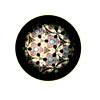 This release is a beautiful finish to Clodagh Simonds' beautiful Neither Speak Nor Remain Silent trilogy. It is as fabulous as the short previews available online have hinted it would be. There is a further increase in complexity and power, much like the progression from Bloom to Huge. The sound is less abstract but still ethereal, like a familiar setting enveloped in mist.
This release is a beautiful finish to Clodagh Simonds' beautiful Neither Speak Nor Remain Silent trilogy. It is as fabulous as the short previews available online have hinted it would be. There is a further increase in complexity and power, much like the progression from Bloom to Huge. The sound is less abstract but still ethereal, like a familiar setting enveloped in mist.
Die Stadt / Janet Records
Like the other two EPs, Allure is painfully brief (although at 25 minutes, it is significantly longer than the others) and is made up of three finely crafted pieces. As anticipated, the vocals throughout are exquisite. The lyrics convey a sense of extraordinary ordinariness, Simonds' knack for taking a normally unnoticed detail and turning it into something magical is strong. When she sings on the title track: "The sun pours in when the morning comes/And the floor's all gold," the effect is devastatingly moving. Allure is not just lyrically impressive, the music carries as much strength and emotion as Simonds' voice does. On "Allure," her words are backed by a gorgeous string arrangement delivered by John Contreras and Cora Venus Lunny. Both musicians playing to the mood of the song, Lunny's virtuosity shining through like the sun in the lyrics.
Lunny's father, Donal, makes an appearance playing bodhran on the following piece, "Long Distance." Simonds manipulates the sound of his percussion into something completely unrecognisable, instead of the throbbing beat of the bodhran, there is instead a dripping rhythmic noise, completely unlike the instrument's distinct character. Surprisingly, Robert Fripp also turns up on this piece. Electric guitar is not an instrument I thought would have worked within Fovea Hex but Fripp does not disappoint and makes it work perfectly. His playing veers between the straightforward and the sublime, a feat he nearly always manages. "Long Distance" is the most dramatic piece to come out of the Neither Speak Nor Remain Silent series, it is a fitting climax to say the least.
Unfortunately, production delays have meant that the bonus disc featuring The Hafler Trio's reworking of Allure is still not ready but will be sent out at a later date. What information is available about it is intriguing: it will be an hour long (much longer than the previous bonus discs in this series) and it will be the last new Hafler Trio work to be made available in a traditional audio format. Aside from already finished works awaiting release and reissues, this is the final audible broadcast from Andrew McKenzie. It is fittingly entitled "An Answer," although I expect like most of McKenzie's work, this answer will be cryptic and some time will have to spent thinking of the right question to go with it. Plans to move The Hafler Trio in a new direction are afoot but what direction this will be is still a mystery.
I cannot express how much I have enjoyed these EPs; each one has been a new exploration in beauty. My one hope is that Simonds follows her own tenet and does not remain silent. Her recent work both with Current 93 and Matmos suggests that she is eager to be heard but it is no surprise that her voice has been strongest with Fovea Hex. As such, I eagerly await further releases from this project and in the meantime, I will enjoy listening and re-listening to Allure as much as I have enjoyed the other two EPs.
samples:
Read More
- Administrator
- Albums and Singles
It’s Cold when Birds Fall from the Sky was originally released by Archive two years ago and sold on Khanate's tour at the time. The set on this disc includes the entire Capture & Release album (all two songs of it) and "Pieces of Quiet" from their debut. The performance captured by Scott Slimm (the man behind the Archive label and most of his label's fantastic live recordings) can only be described as feral. The band stalk through the pair of lumbering and muscular songs from Capture & Release, the tension is beyond heavy. All the strain that the foursome have built up during the first forty minutes is unleashed upon their audience in the form of "Pieces of Quiet." The squealing feedback that pierces the song is like being slashed with a broken bottle across the face after the slower and longer songs that preceded it.
samples:
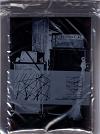 As one of the more obscure Khanate releases, it is great to finally hear the KHNTvsSTOCKHOLM album. Recorded in 2004, a very small CD-R pressing was made of this disc at the time and up until now was going for silly money to collectors. While this version is also a limited edition, it will reach far more ears than the original release for a far better price. Despite the "Special Low Fidelity Edition" tagline to KHNTvsSTOCKHOLM I found the sound clear enough, the kind of quality from a good bootleg after someone with a good ear has tweaked the audio. Most importantly, it sounds just as intimidating as every other Khanate release. The only distraction is the sound of people chatting around whoever is recording the show.
As one of the more obscure Khanate releases, it is great to finally hear the KHNTvsSTOCKHOLM album. Recorded in 2004, a very small CD-R pressing was made of this disc at the time and up until now was going for silly money to collectors. While this version is also a limited edition, it will reach far more ears than the original release for a far better price. Despite the "Special Low Fidelity Edition" tagline to KHNTvsSTOCKHOLM I found the sound clear enough, the kind of quality from a good bootleg after someone with a good ear has tweaked the audio. Most importantly, it sounds just as intimidating as every other Khanate release. The only distraction is the sound of people chatting around whoever is recording the show.
Pummelling their equipment, the intensity of this gig is crushing. After nearly twenty minutes of the snuff horror of "Fields," "Pieces of Quiet" rears its shrieking head again. It is even more earth shattering than it was on It’s Cold…. The feedback is sharper and the music is even more violent. The highlight of KHNTvsSTOCKHOLM is undoubtedly the immense rendition of "Under Rotting Sky" that closes the set. This has always been the defining Khanate song for me and this version haemorrhages out of my headphones like the river of gore that takes the lift in The Shining. It may lack the polish of the studio version but it retains the power and increases the menace.
Both of these discs are essential documents of a group that were far more important and exciting than any other metal band of the last ten years. While no live album can ever be representative of the sheer force of experiencing Khanate live, they are a damn sight better than nothing. Khanate's criminally small back catalogue means that I will scramble for all I can get by them and both It's Cold… and KHNTvsSTOCKHOLM sit proud next to the other albums.
samples:
Read More


